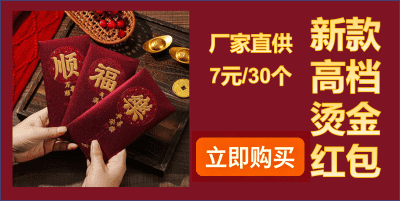春节就是年

翻译成英文(拜年)在中国春节就是新年,每逢春节,亲戚,朋友走...-ZOL问答
In China, the Spring Festival is the New Year. During the Spring Festival, relatives and friends visit each other\'s homes to celebrate...
“春节”是什么意思?过年中的“年”是什么意思?_作业帮
The term \"春节\" (Spring Festival) refers to the first day of the lunar new year. It is also known as 元日 (Yuán Rì), 元旦 (Yuándàn), 无正 (Wúzhèng), 元辰 (Yuánchén), 元朔 (Yuánshuò), 岁旦 (Suìdàn), 岁首 (Suìshǒu), 岁朝 (Suìcháo), 新正 (Xīnzhèng), 首祚 (Shǒuzuò), 三元或年 (Sānyuán huò nián), or simply 过年 (Guònián). The specific date of the New Year\'s Day varies due to different calendars used throughout history...
年和春节的区别?
While the Spring Festival is a solar term and one of the 24 solar terms, it also serves as a transition from the old year to the new year. \"年\" (Nian) specifically refers to the moment when the old year changes to the new year and does not represent a solar term itself.
春节是不是过年?
Yes, the Spring Festival is synonymous with the Chinese New Year. The term \"春节\" usually refers to the New Year\'s Eve and the first day of the lunar new year. However, in folk tradition, the Spring Festival is a more extended period that starts from the ceremony on the eighth day of the twelfth lunar month and continues until the Lantern Festival on the fifteenth day of the first lunar month...
春节算过年吗?
Yes, the Spring Festival is equivalent to the celebration of the Chinese New Year. The term \"过年\" (guò nián) directly translates to \"celebrate the New Year.\" The Spring Festival is a time for bidding farewell to the old and welcoming the new, honoring ancestors, warding off evil spirits, and seeking blessings...
春节等于过年吗?
Yes, the Spring Festival is equivalent to celebrating the Chinese New Year. It is one of the four major traditional festivals in China and is also known as the Lunar New Year. The Spring Festival originated from ancient sacrificial activities to celebrate the beginning of a new year and has since become the most important traditional festival for the Chinese people. It falls on the first day of the lunar calendar each year...
春节是中国人最大的节日,又叫过年,过年的“年”是什么意思呢?
The term \"年\" (Nian) is composed of the Chinese characters \"禾\" (grain) and \"千\" (thousand). In ancient times, a good harvest year was often referred to as \"丰年\" (fēng nián), \"大有之年\" (dà yǒu zhī nián), \"乐岁\" (lè suì), or \"穰岁\" (ráng suì), while a year of poor harvest was referred to as \"凶年\" (xiōng nián) or \"饥岁\" (jī suì). Since the majority of ancient grains matured only once a year, the term \"年\" symbolizes the cycle of agricultural production and represents the passage of time...
年和春节是同一天吗?
The Chinese New Year\'s Eve, which is also referred to as \"除夕\" (chú xī), is the evening before the first day of the lunar new year. The Spring Festival, or \"春节\" (Chūn Jié), starts on the first day of the lunar new year. Each year, people begin to celebrate and exchange greetings after midnight on New Year\'s Eve, which means they start to celebrate the new year.
春节可以称为新年吗?
Of course, the Spring Festival can be considered the New Year! It is the lunar new year, also known as the Chinese New Year. The lunar new year holiday is relatively long, and people are accustomed to visiting relatives and friends, exchanging New Year greetings, giving red envelopes to children, bidding farewell to the old and welcoming the new. In comparison, the Gregorian New Year does not hold as much significance...
春节是不是新年?
Yes, the Spring Festival is the Chinese New Year. It is the most important festival of the year for the Chinese people. The period from New Year\'s Eve to the fifteenth day of the lunar new year is filled with festivities and celebrations.



